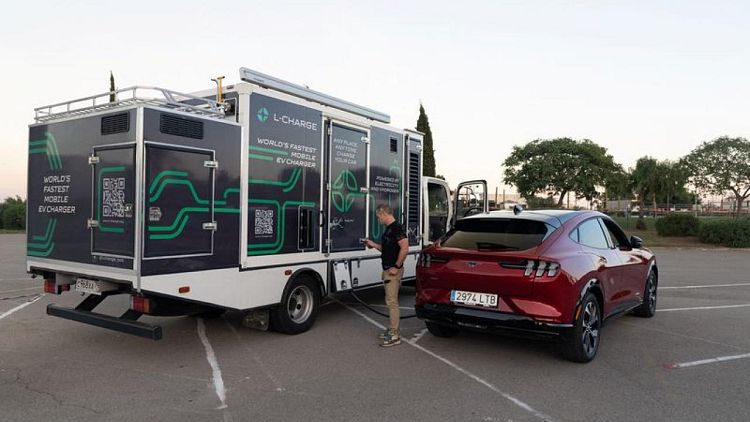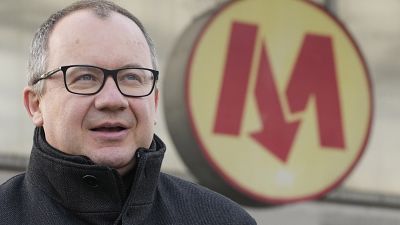By Gleb Stolyarov
MOSCOW - Russian start-up L-charge plans to bring its mobile superchargers for electric vehicles to London in 2022, hoping to benefit from growing demand and the limited existing charging infrastructure, the company's founder told Reuters.
The firm's truck-mounted chargers run on liquefied natural gas (LNG), hydrogen or a mixture of the two and do not need to be connected to a power grid. They take 5-7 minutes to charge 80% of an electric vehicle's battery, Dmitry Lashin said in an interview.
Lashin said his company runs the world's only mobile supercharger using LNG/hydrogen, which it operates in Moscow, where it receives five to six charging requests a day from the city's 1,000 EVs.
EV sales have been rising globally as demand for alternatives to diesel and gasoline cars grows, but there is a lag in terms of providing charging points.
Privately-owned L-charge raised $1.5 million in September and is seeking a partner to help it increase production to 2,000 mobile and stationary devices annually.
Lashin said L-charge is close to finishing production of two other superchargers. The London unit will be accessed via an app.
The LNG-powered chargers emit three times less CO2 per 100 kilometres than diesel cars, but more than grid-connected chargers in Europe, where L-charge intends to launch after London, Lashin said.
They are also more expensive for customers. Mobile L-chargers will cost about 0.80 euro cents per kilowatt per hour, Lashin said, which he said was about 1.5-2 times dearer than existing options.
But L-charge's goal is to increase electric car usage, Lashin said, and expand what he sees as London's limited charging infrastructure.
Britain has about 705,000 plug-in vehicles, 365,000 of which are fully electric, the ZAP-MAP platform for electric car drivers shows. Of the 28,000 public charging devices, more than 9,000 are in Greater London.
"The problem with electric cars is that even if you have 98% of the battery filled, you still put it on charge," Lashin said. "As a result all the slots are occupied and no one is charging."
When mass produced, the mobile charger will cost about $200,000 and charge around 25 EVs daily, Lashin said.



